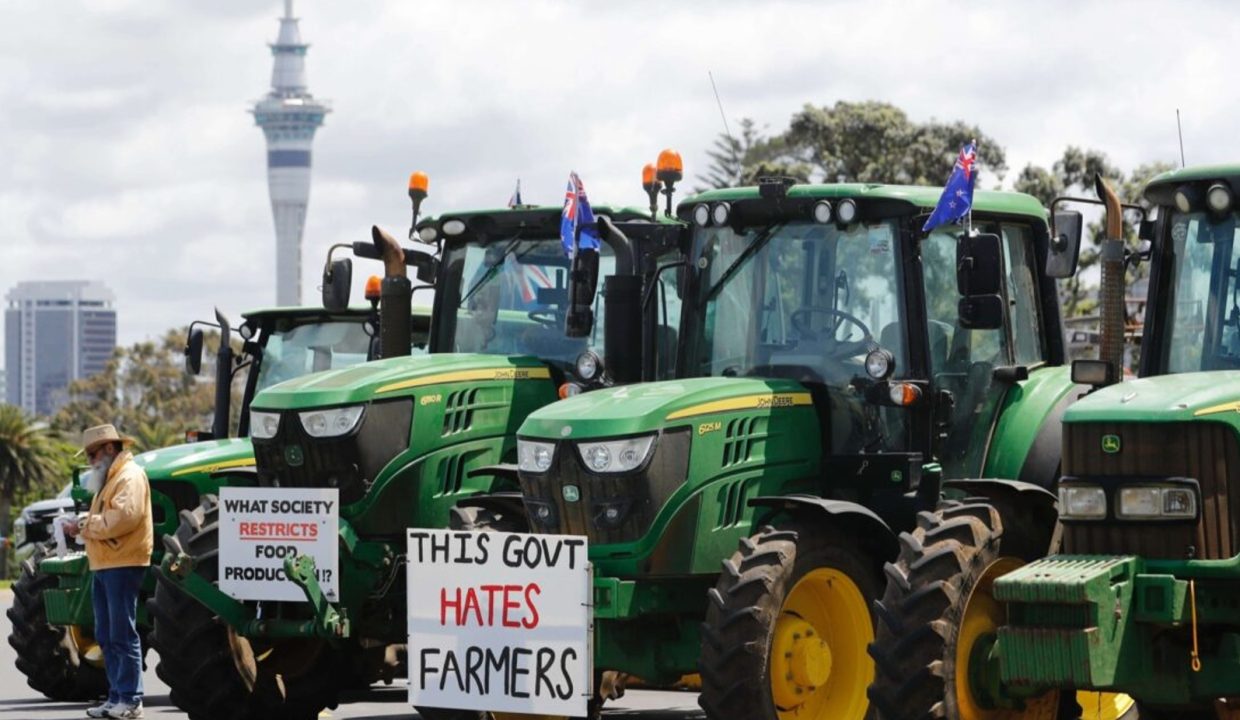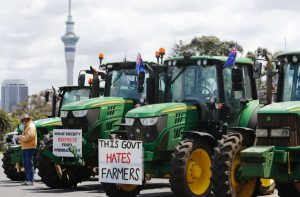
뉴질랜드, 농부들의 반발로 가축에 대한 ‘트림세’ 폐지
New Zealand scraps ‘burp tax’ on livestock after backlash from farmers
The New Zealand government has decided to halt plans to levy taxes on greenhouse gases emitted from agriculture, including cattle emissions, marking a global first. This decision comes in the face of strong opposition from farmers.
According to Radio New Zealand (RNZ), the New Zealand government announced in a statement released this week that it would amend climate change response legislation, excluding the agriculture sector from the application of emissions trading schemes.
In lieu of this decision, the government stated, “We will explore alternative measures to reduce biological methane production in collaboration with agricultural organizations.” Consequently, an investment of NZ$400 million (approximately $3.4 billion) over four years is planned.
Todd McClay, New Zealand’s Minister of Agriculture, stated, “We will accelerate methane vaccine development, low-emission livestock breeding projects, and research on methane and nitrous oxide inhibitors.” He added, “The government is focusing on practical methods and technologies to reduce greenhouse gas emissions while maintaining agricultural production and exports.”
This decision comes as New Zealand stands as one of the world’s largest exporters of dairy products, with around 10 million cattle and 26 million sheep. While the agricultural sector plays a crucial role in the New Zealand economy, emissions from livestock trimming and other activities contribute to half of the nation’s total emissions.
In related developments, the New Zealand Labour Party government had previously announced plans in 2022 to introduce taxes on methane and other greenhouse gases emitted by agriculture, starting from 2025. The aim was to reduce methane emissions by 10% from 2017 levels by 2030.
However, amidst opposition from agricultural organizations and conservative alliances pledging to halt this policy, the government has made this decision.
According to a report by the Food and Agriculture Organization (FAO) of the United Nations, global livestock emissions amount to approximately 71 billion tons annually. This accounts for roughly 15% of total greenhouse gas emissions worldwide.

뉴질랜드, 농부들의 반발로 가축에 대한 ‘트림세’ 폐지
뉴질랜드 정부가 세계 최초로 소의 트름 등 농축산업에서 발생하는 온실가스에 부과할 계획이었던 세금을 중단하기로 결정했다. 이 결정은 농민들의 강한 반대에 직면한 데 따른 것이다.
라디오 뉴질랜드(RNZ)에 따르면, 뉴질랜드 정부는 이번 주에 발표한 성명에서 기후변화 대응법을 개정하며 농축산 분야를 배출권거래제의 적용 대상에서 제외하겠다고 밝혔다.
이에 대한 대체로, 정부는 “농축산업 단체들과의 협력을 통해 생물성 메탄 생산량을 줄일 수 있는 다른 방안을 탐색할 것”이라고 설명했다. 이에 따라 4년 동안 4억 뉴질랜드 달러(약 3400억원)를 투자할 예정이다.
토드 맥클레이 뉴질랜드 농업부 장관은 “메탄 백신 개발, 메탄 저배출 가축 사육 프로젝트, 그리고 메탄 및 아산화질소 억제제 연구를 가속화할 것”이라며 “정부는 농축산업 생산과 수출을 유지하면서도 온실가스 배출을 줄일 수 있는 실질적인 방법과 기술에 집중하고 있다”고 말했다.
이번 결정은 뉴질랜드가 세계에서 가장 큰 낙농 수출국 가운데 하나로, 약 1000만 마리의 소와 2600만 마리의 양을 기르고 있는 상황에서 이뤄졌다. 농축산업은 뉴질랜드 경제에 중요한 역할을 하지만, 가축의 트림 등으로 인해 발생하는 온실가스 배출량이 국가 전체의 절반을 차지하고 있는 것으로 알려져 있다.
이와 관련하여 2022년에 뉴질랜드 노동당 정부가 2025년부터 농축산업을 배출권거래제에 포함시켜 메탄 등 온실가스에 부과할 세금을 도입하기로 한 바 있었다. 이를 통해 2030년까지 메탄 배출량을 2017년 수준보다 10% 감축할 것으로 목표를 설정했다.
그러나 이에 반대하는 농축산업 단체들과 보수 연합이 이 정책을 중단할 것을 약속하며, 정부는 이 결정을 내렸다.
유엔식량농업기구(FAO)의 보고서에 따르면, 전 세계의 가축이 배출하는 온실가스는 연간 약 71억 톤에 달한다. 이는 전체 온실가스 배출량의 약 15%를 차지하는 수준이다.
